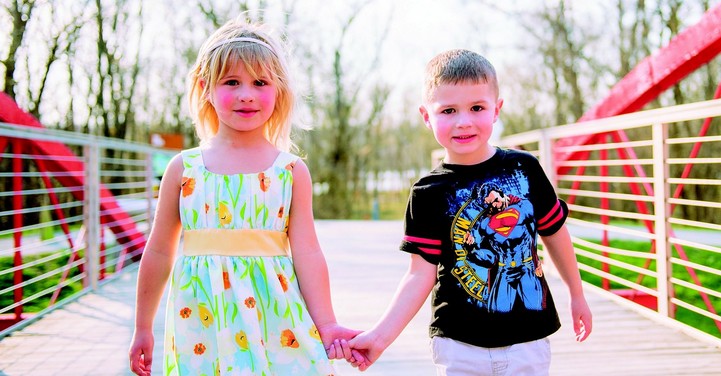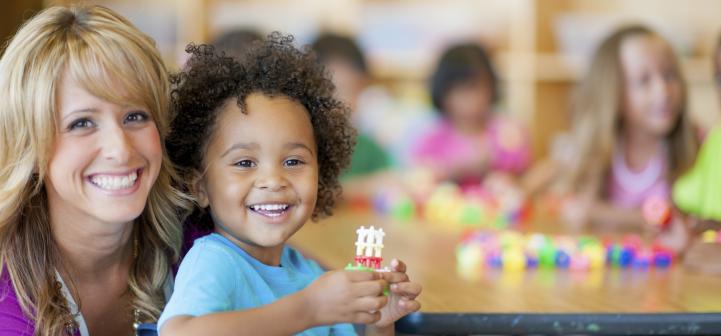
Friendships are important for everyone at all stages of life. Including children with special needs in a child care classroom with typically developing children can be beneficial to developing friendships among children with different strengths and abilities.
In an inclusion classroom, the child with a special need has the opportunity to interact with typically developing children and form genuine friendships with them. At the same time, the other children have chances to interact with people whose abilities vary and to learn that disabilities are simply a part of life. Peers can provide important support for a child with special needs, both by providing practical help and by forming friendships.
Helping Children with Special Needs Make Friends
Child care providers can help young children as they develop friendships. Some children with special needs will make friends very easily. Others may need an adult’s help in connecting with peers in their classroom. One easy way to begin encouraging peer interaction is to watch for children who show an interest in each other or in similar activities. If a child with a special need appears interested in a peer, or another child is making attempts to connect with the child who has a special need, you can encourage and strengthen their budding friendship using the suggestions below.
- Allow children time alone together, both in the classroom and by encouraging parents to arrange play dates.
- Organize the play area. Small, cozy spaces, such as a reading corner, encourage closeness. Toys, materials, and playground equipment that require two children promote working together and communication.
- Have multiples of some toys. Providing children with multiple versions of similar toys and materials encourages friends to perform the same action at the same time.
- Encourage playfulness. Within reason, allow noisy, silly, and active play among children. Some children with special needs have been relatively isolated and have never had the opportunity to experience the closeness created by shared laughter.
- Set up play situations. Assign children who have shown an interest in each other or in similar activities to a small group. Set up an interesting activity near both children, and encourage them to engage in it.
- Reinforce positive behavior. Encourage all children who are playing well together.
- Be an appropriate role model. Join the children in play at key moments. You might step in and play a supporting role in order to keep the interaction going, or take a second to explain a child’s actions that the friend might not understand.
- Give the child with a special need a leadership role. Encourage that child to make decisions, lead a part of an activity, or distribute popular materials. Peers may be more likely to see that child as an interesting playmate if the child has a leadership role.
- Never force friendships between children of any age or ability. Do not insist that children who are not interested play together, or force children to continue at an activity if they are no longer engaged. Forcing friendships may actually create negative feelings instead of positive interactions.
Friendship among typically developing children and children with special needs is not only possible but beneficial. With support and encouragement from adults, young children with and without disabilities can form connections that not only provide enjoyment but help promote their growth and development in multiple domains.
For More Information
To learn more about supporting children with special needs in child care, check out the eXtension Alliance for Better Child Care section on Child Care for Children with Special Needs, or take a look at the following articles:
